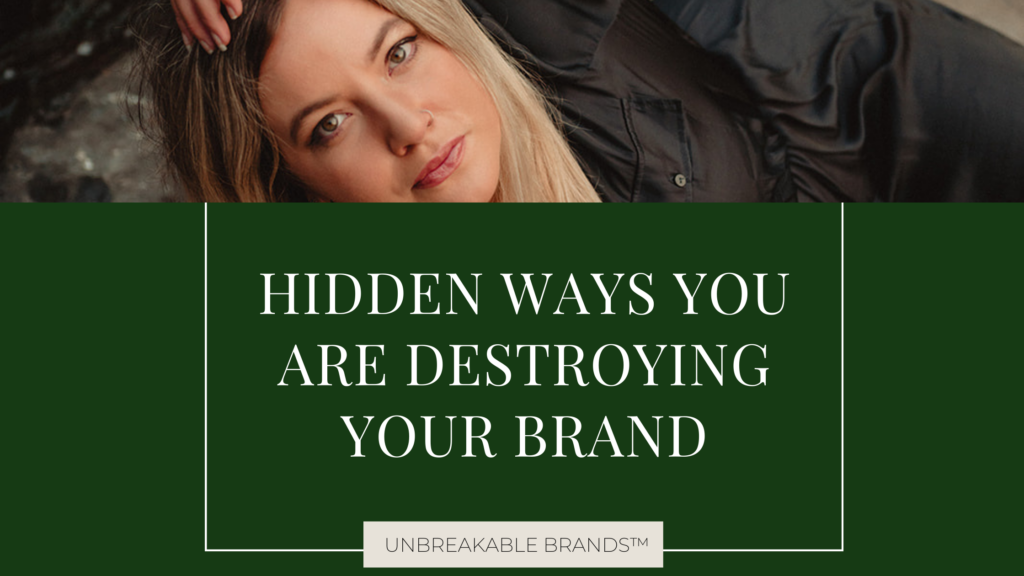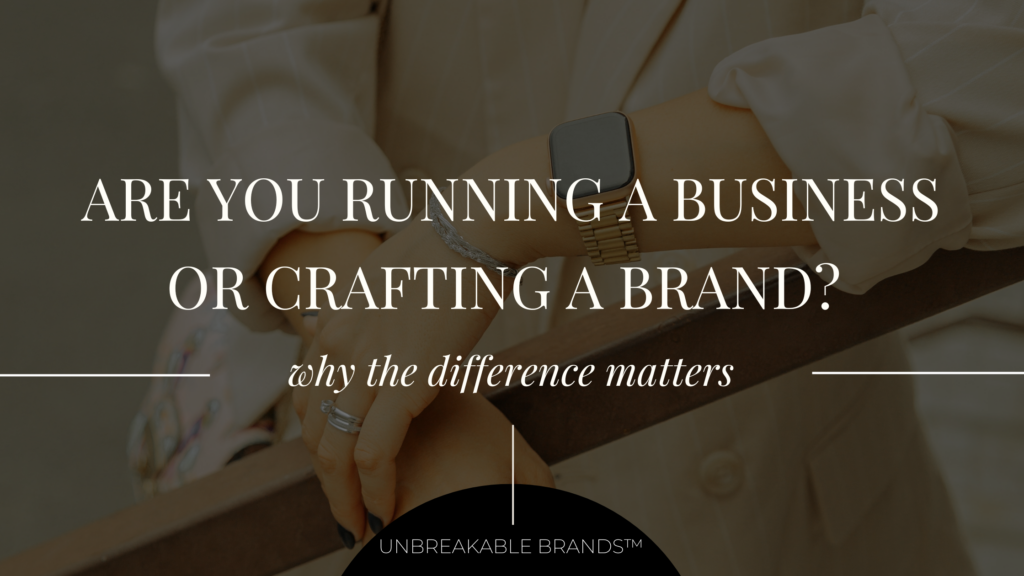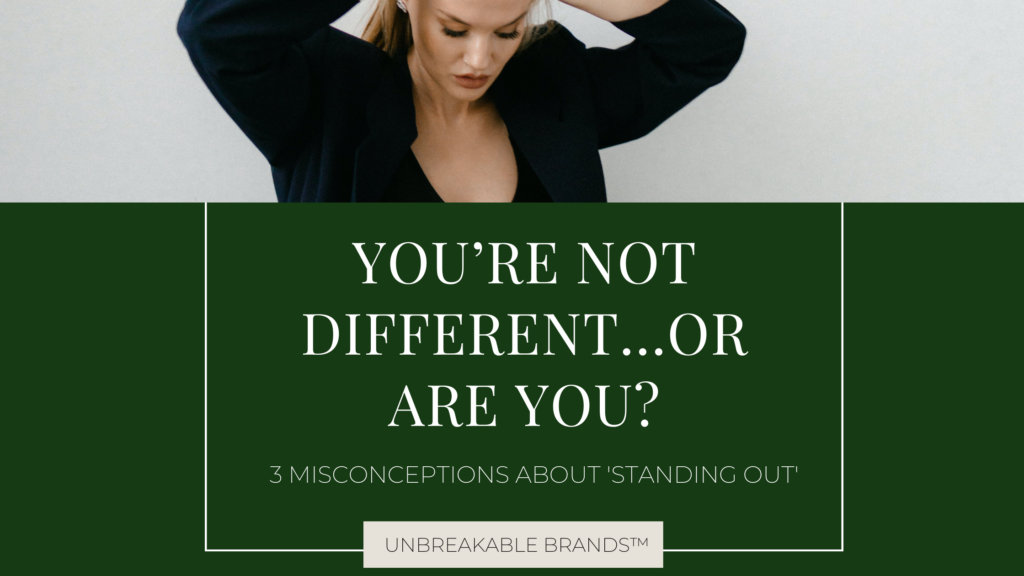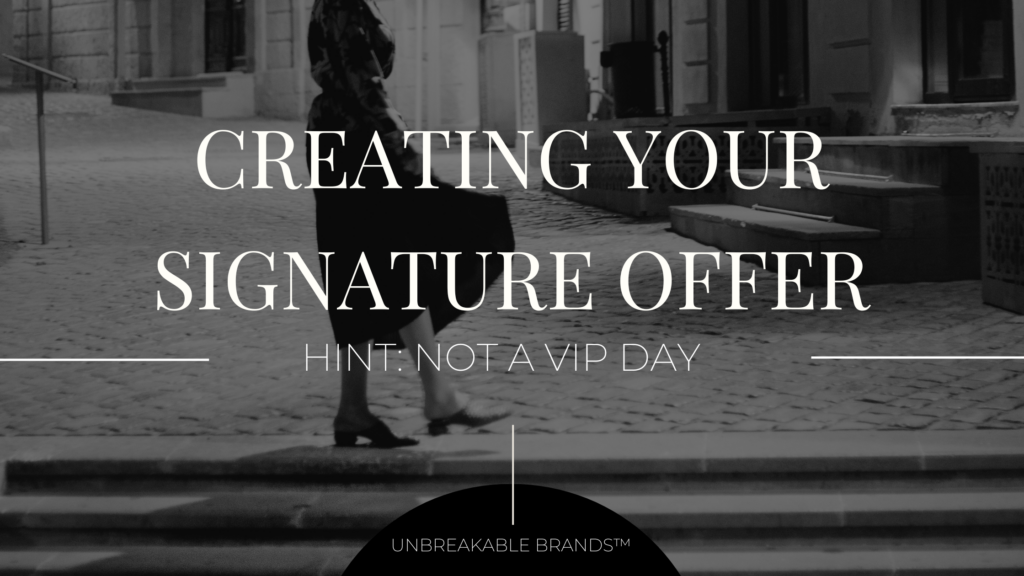I know, I know. This is ‘Unbreakable Brands,’ and now you’re telling me mine is falling apart? Well, yes – you could be unintentionally degrading your brand instead of building an unbreakable one. In today’s episode, I am diving into 3 common brand-breaking pit falls and how you can avoid them as you scale.
Listen Now
This is not a reality TV show. it’s your brand
– Bethany McCamish, your host
Here’s what you can expect to hear in this episode:
- The problem with callings your clients, audience or team ‘family’
- Why you should not create your brand around being a ‘hot mess’
- Your Upwork/Fiverr profile is not a brand
Resources Mentioned In
This Episode
Take The Brand Quiz To Unearth Your brand personality
Pop over to our brand and web design agency and take the free brand personality quiz to begin diving into your brand persona.
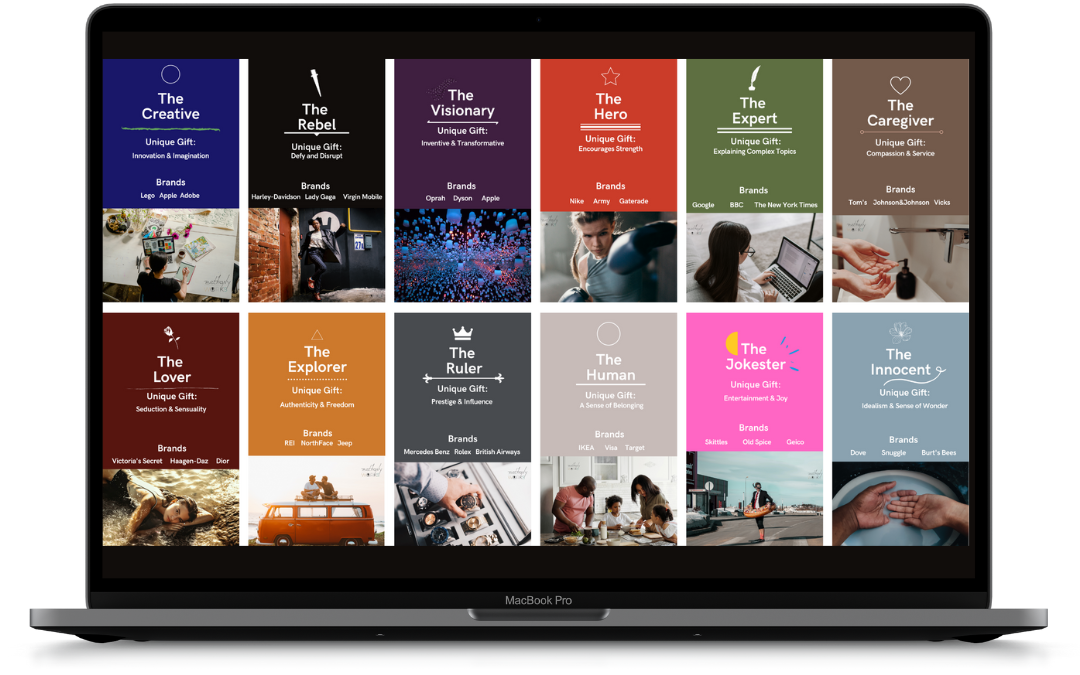
#1: Calling your clients, customers, or audience your family
Brands who value equity do not call their customers, clients or audience their family. It is not a healthy or sustainable structure because when you say family, your brain says to do anything and everything for them no matter what. So over time, this tends to lead to dropping boundaries, overworking, and eventually burnout.
The same thing goes for your team. If you have a company and you call your team family, it’s just as bad, right? Because it leads to those same things of overworking, burnout, dropping boundaries, and a sense of emotional manipulation.
Before you come for me, this does not mean you can’t have a warm, nurturing, welcoming brand. If those are your brand values, there are healthier and more sustainable ways to do that that help not only you and your mental well-being but help the sustainability and growth of your business be taken seriously as an expert in authority over time.
Here’s an example, instead of saying, ‘We’re like a family’ or welcoming people into a family, you can equate it with something like a sports team, a league, a squad, telling them you’re there to back them up. It’s a very simple, easy switch to create a very healthy and sustainable boundary if you have to have ‘warm, nurturing, caregiving’ if that happens to be part of the brand values that you want to represent.
#2: ‘Being messy’ is not a brand vibe
A rebrand looks like your business is getting to the point where all of your touch points need to shift to grow with your brand. This can be one or two things – like fresh copy, for example, or it can be the whole ‘brand spanking new’ makeover (see what I did there).
If you want to do everything branding right and get it looking good but, more importantly, feeling good – aka aligned- then you need to follow a specific order of operations.
I am sure you’ve seen it, or maybe I am calling you out specifically, but a brand (typically a personal brand) that rides the wild wave of ‘hot mess express’ is not helping your brand or business. While occasionally, and very occasionally, I have seen this work for a purely personal brand or influencer- if you are a CEO running a business, it eventually will fizzle out and will certainly impact your bottom line.
Constantly sharing how you are late, you stayed in your pajamas for five weeks straight, and you live in pure chaos might be entertaining, but this is not a reality TV show. It’s your brand. At its core, it won’t work because it is an approach that puts all of the focus for your business and brand on you and only you. If you’ve learned anything so far, it should be that the focus needs to be on your client or customer always.
If integrity is at all at the center of what you do or your mission, then how you show up should not be taking us for an all-inclusive chaos trip, but should instead be rooted in what you can do for others and how you serve with integrity. That likely has nothing to do with being a hot mess.
I want to leave this one by saying yes, you can have a funny and irreverent brand, my past client Paulette is a great example of this, sharing her rejection emails when she submits her writing work. But she is also balancing this with supportive offers centered around her clients (helping writers write), and sharing her own rejection is a way to create empathy and community- both important pillars in her brand.
#3: UpWork and Fivver are Freelance Work, Not Your Brand Work
This is one I am prepared to get the heat for, I know. But I want to start by saying you can absolutely make incredible money on these platforms. I know people who have hit six and even seven figures. You can also choose to only work off these platforms, but you need to know the risk and potential damage that can do to your brand.
UpWork, Fivver, and other platforms like these are built to connect freelancers with businesses – large and small. They take a fee for the connection and use of their platforms. The fees are not even why I am talking about this, but are a deterrent. These platforms are built for gigs, not sustainable business.
Here’s the major divide:
- You have no control (or very little)
- You can’t take clients off the platform without violating the Terms of Service – it is a big no-no
- You will be competing on price first, not as a brand
While you may have started there as a service provider, the goal as you build your business and brand is to operate independently, have control over your leads, keep clients in YOUR hands, not someone else’s, and set your own rates- not even worrying about fees and ‘competition in the sense that you would on these platforms.
If you plan to be a freelancer forever and don’t mind, then, by all means, dive in, but if not, it is time to stop relying on what is the Amazon of service providers for your business.
As you scale your business and cultivate your brand, I’d avoid these and work on your foundations first.

